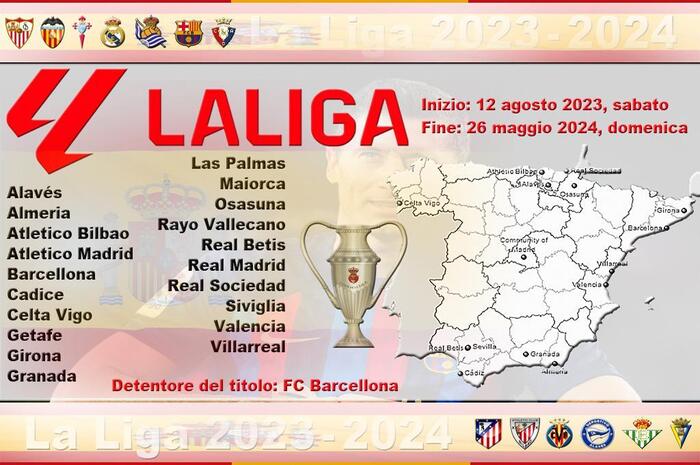Diego García, after winning bronze at the European Championships in Munich 22.LUKAS BARTH
Like a flower in the desert, a bud of incense, and the same hope.
Thanks to the enthusiasm of Diego García, medalist in two European Championships, who mobilizes companies, authorities and sponsorships, LaLiga, the Community, the city council and telephone networks, the march will breathe on Sunday on Madrid's Gran Vía, closed to traffic between the San Luis and Callao, round trip, 10 laps of a 1,000 meter circuit.
It will be at 10:30.
After the heat wave is over, cloudy weather is expected, between 18 and 20 degrees.
Little more than half an hour of walking for the best in the world, and three quarters of an hour for the women, the Olympic champion Massimo Stano, the Olympic champion Antonella Palmisano, Diego García, Perseus Kärlstrom, the European runner-up Raquel González, Marc Tur or Laura Garcia Caro.
A fleeting glimpse of the specialty that has won the most medals, Olympic,
world, European, has given Spanish athletics.
The Gran Vía, closed to traffic for them.
The march dies.
Like dinosaurs on the verge of extinction, the marchers resign themselves.
They hardly complain about their fate.
They propose to turn the Madrid test into a demonstration, into a pulpit of protest and reminder, and they lower their shoulders.
They accept as they would accept the divine laws that everything has a beginning and an end.
They only aspire to live an inexplicable world without shocks, to breathe without further ado.
alone.
The International Olympic Committee (IOC) has deleted from the Paris 2024 Olympic program, endless turns around the Eiffel Tower, the distance of 50 kilometers, so long, almost four hours, and also the proposal for a smaller one, 35 kilometers.
The 20-minute test will be held, 80 minutes more or less for men, 90 for women, and added, as compensation and gloss of modernity,
a mixed relay competition over the marathon distance, 42.195 kilometers.
One athlete and one athlete per country who are relieved every 10,049 meters, two alternate sections for each one.
Sprinters wanted.
The 10 kilometers of the Gran Vía on Sunday, Madrid March, will already have the interest of checking which walkers best adapt to the new Olympic distance.
The Italian pair of Olympic champions in Tokyo, Palmisano, who returns to the competition 21 months after his gold in Sapporo, once an insidious injury has been overcome, and Stano, understand it that way, and intend to turn Madrid into a test of what will be Paris in 15 months.
The long-distance walkers, represented until recently by the perpetual figure of Chuso García Bragado, who retired at the age of 52 after participating in eight Olympic Games over a distance of 50 kilometers, already feel condemned by a sentence that the IOC justly pronounces. a year before the Games.
And they have been preparing for two, and receiving a scholarship, for a test that will not be held.
The Ibizan Marc Tur, fourth in the 50 kilometers of Tokyo 2020, is once again considering running for the MIR that he resigned from after graduating in Medicine, because he chose to dedicate himself fully to athletics.
The world champion of 20 kilometers Miguel Ángel López, who had passed to the long distance, will have to fight for a place with the rapids of now.
García Bragado quotes
Invictus,
and Frans Pienaar, white captain of South African rugby, inviting his teammates to accept that they have to go to the apartheid ghettos: "Times are changing and we have to change with them."
The athletes have lowered their arms.
The international athletics federation (World Athletics, WA), too.
Its directors say that it was this or nothing, that it was an impossible fight to win because the IOC has put the cross on the march, and not so much because the discipline has always been reproached that no practitioner respects the rules of not bending the knee and always keep one foot on the ground, the signs that you don't walk, you run.
Thinking that it was that problem, the technicians and the people of the march look for and do not find technological solutions, chips in the shoes, accusing insoles.
But it is not that, they say in the WA, it is not the problem of the credibility of the culprit, the IOC does not like the march because they believe that its tests are very long and very boring, contrary to the tastes of the youngest to whom looking to hook up with
break dancing
, climbing, surfing or
skateboarding
.
And WA has to accept without question what the IOC says because financially it is in the hands of the Olympic body chaired by Thomas Bach, which has injected it with 45 million dollars after the Tokyo Games.
And also because for the current Anglo-Saxon leadership of Sebastian Coe's WA, walking, a specialty with a lot of weight in countries with little power in the leadership of current athletics, Spain, Italy, Russia, Japan, China, is not the most Dear.
You can follow EL PAÍS Deportes on
and
, or sign up here to receive
our weekly newsletter
.



/cloudfront-eu-central-1.images.arcpublishing.com/prisa/NGWIXMWIJRGVVMUMCINKEFYGJU.jpg)
/cloudfront-eu-central-1.images.arcpublishing.com/prisa/HVILFUZBXASBFHNDCNIJMBGZYA.jpg)





/cloudfront-eu-central-1.images.arcpublishing.com/prisa/S7UVDTX7DREC7DXVCZN6MEKGBY.jpg)




